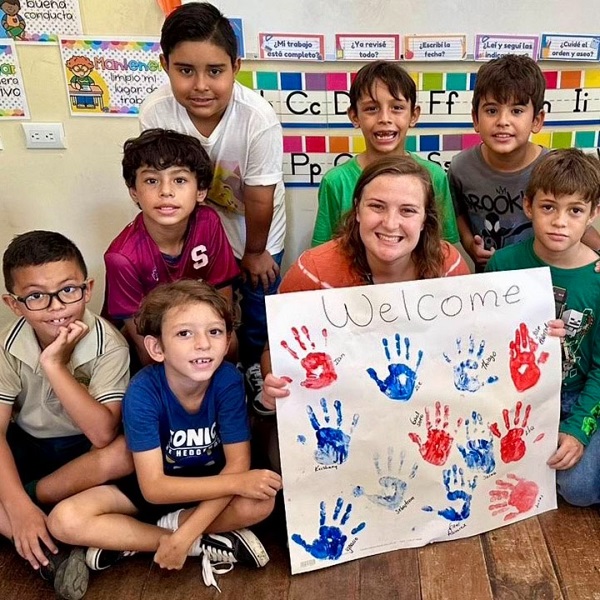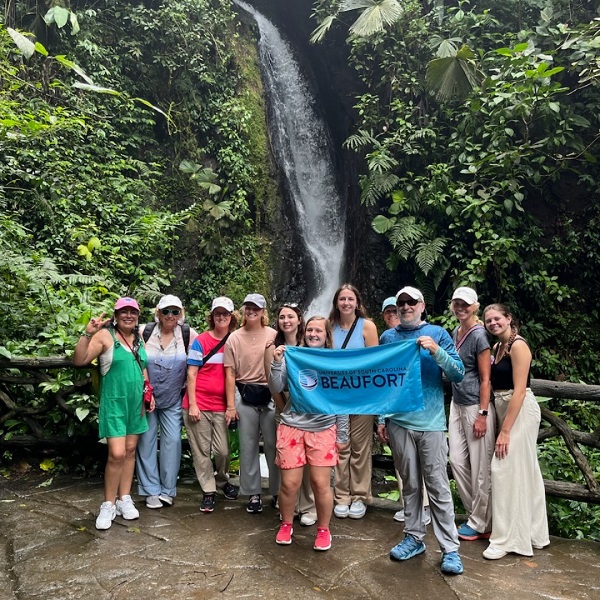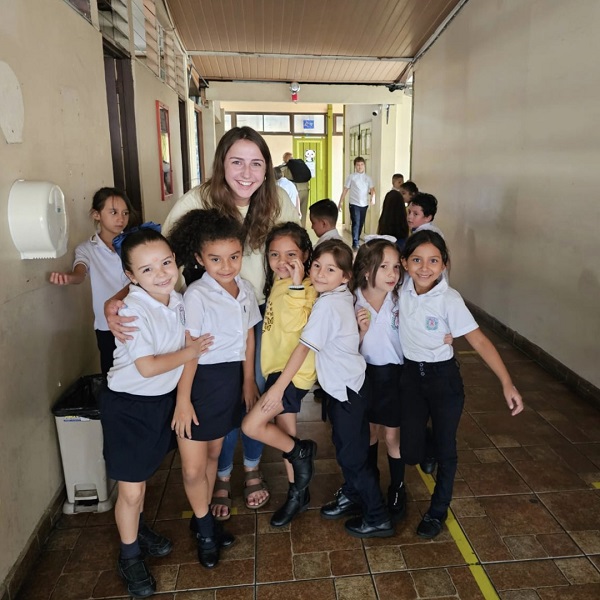USCB Leads Education Study Abroad Experience in Costa Rica
 Costa Rican students welcomed the USCB Education group.
Costa Rican students welcomed the USCB Education group.In July 2024, the University of South Carolina Beaufort (USCB) advanced its efforts to cultivate culturally responsive educators through a study abroad program in Costa Rica.
Led by Dr. Bruce Marlowe, chair of USCB's Education Department, and Kattia Chaves Herrera, USCB Alumni Support Coordinator, a group of in-service teachers and undergraduate teacher education students co-taught at schools in the Central American country. The aim of this study abroad experience was to help them explore the relationship between language and identity and to develop culturally and linguistically responsive teaching practices.
The program immersed participants in Costa Rican culture through seminars, homestays with local families, and co-teaching experiences in both public and private schools across three regions. This hands-on approach allowed them to observe and implement teaching strategies that prioritize cultural relevance. The USCB group members:
- Participated in seminars about Costa Rican culture and identity;
- Traveled to 3 different regions of Costa Rica;
- Lived with Costa Rican host families; and
- Co-taught with Costa Rican teachers in Costa Rican classrooms in private and public schools.
 The USCB Education group ventured into national parks and forest reserves while in
Costa Rica.
The USCB Education group ventured into national parks and forest reserves while in
Costa Rica. Participants were deeply impacted by the experience. Kaylyn Jo-Ann Pierce, a high school teacher, noted how Costa Rican students benefit from regular breaks, allowing them to "just be kids," which contrasts with the more structured school days in the U.S.
Cameron Horn, a second-grade teacher, admired the students' happiness and eagerness to learn and noted that Costa Rican schools offer more diverse ways for students to express their knowledge.
"The students had more opportunities to show what they knew in different ways," she said.
Kattia Chaves Herrera emphasized the importance of integrating cultural traditions into the classroom.
"Performing art and movement is very important for cultures whose tradition is based on art and stories," she said. "That is important when presenting a class or creating activities so that kids feel connected culturally, emotionally and physically."
For some participants, the trip was transformative. Mckenzie Wray, a USCB psychology student, decided to switch her major to education after her Costa Rica study abroad experience. Kayla P. Townsend, a fourth-grade teacher, was inspired by the inclusive education practices she observed, particularly the seamless integration of special education students into mainstream classrooms.
The trip also prompted critical reflections on U.S. education. Kate White, a third-grade teacher, questioned the focus on testing, realizing the benefits of a more creative and individualized approach to learning.
 USCB’s group co-taught in public and private schools while in Costa Rica.
USCB’s group co-taught in public and private schools while in Costa Rica. Marlowe praised the strong, positive relationships between students and teachers in Costa Rican schools, noting that the experience has inspired participants to incorporate these lessons into their teaching practices back home.
-USCB-
CW/8/21/24